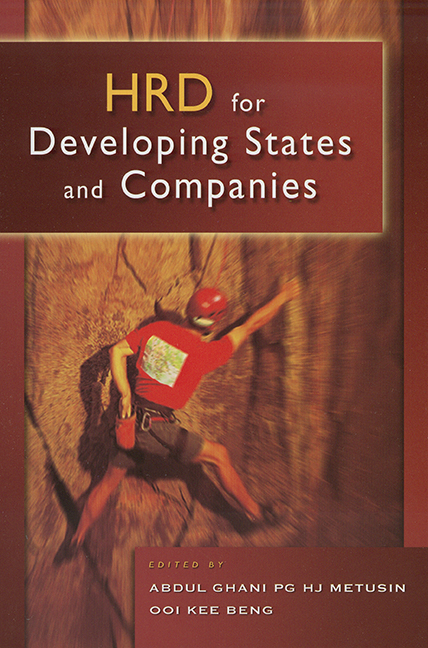Book contents
- Frontmatter
- Contents
- Foreword
- Preface
- Editorial Remarks
- Acknowledgements
- Introduction
- HRD for Statesmen
- HRD Strategies for Companies
- Competence Development
- Corporate Experiences
- 20 Finding, Nurturing and Developing the Professional Workforce — The BSP Experience
- 21 Learning Strategies for Global Competitiveness — The Petronas Experience
- About the Authors
20 - Finding, Nurturing and Developing the Professional Workforce — The BSP Experience
from Corporate Experiences
Published online by Cambridge University Press: 21 October 2015
- Frontmatter
- Contents
- Foreword
- Preface
- Editorial Remarks
- Acknowledgements
- Introduction
- HRD for Statesmen
- HRD Strategies for Companies
- Competence Development
- Corporate Experiences
- 20 Finding, Nurturing and Developing the Professional Workforce — The BSP Experience
- 21 Learning Strategies for Global Competitiveness — The Petronas Experience
- About the Authors
Summary
INTRODUCTION
The tag-line that “people are our greatest assets” has been heard time and time again in the popular media. Peter Drucker, often regarded as the father of modern management, reinforced the importance of human assets when he said that “ the single most important competitive advantage will be…the ability of a company to attract, hold and motivate workers…”.
Nevertheless, retrenchment, redundancies and job cuts are equally everyday news. In this situation, do workers actually believe that they are treated as if they were the firm'sgreatest assets? Is it all lip service?
This paper looks at the experience of Brunei Shell Petroleum Company (BSP) in attracting and developing its professional workforce. It is hoped that our experience goes some way towards at least giving our employees, Bruneians and expatriates alike, a real sense that they “make a difference” in building a competitive edge for BSP.
BSP PEOPLE STRATEGY
The current BSP People Strategy was crafted in 2001. This strategy puts the balance between local and global needs at its centre by putting emphasis on the following:
• The aspirations of the nation will drive our Bruneianization policies, while we at the same time wish to be an employer of choice for both locals and foreigners.
• The use of global competence-based development (CBD) tools and processes to ensure a level playing field.
• The recognition of professional qualifications that meet international standards.
• The importance of maintaining an international flavour in our workforce.
• The increasing use of international assignments for Bruneians to develop their skills and leadership.
- Type
- Chapter
- Information
- HRD for Developing States & Companies , pp. 151 - 158Publisher: ISEAS–Yusof Ishak InstitutePrint publication year: 2005



